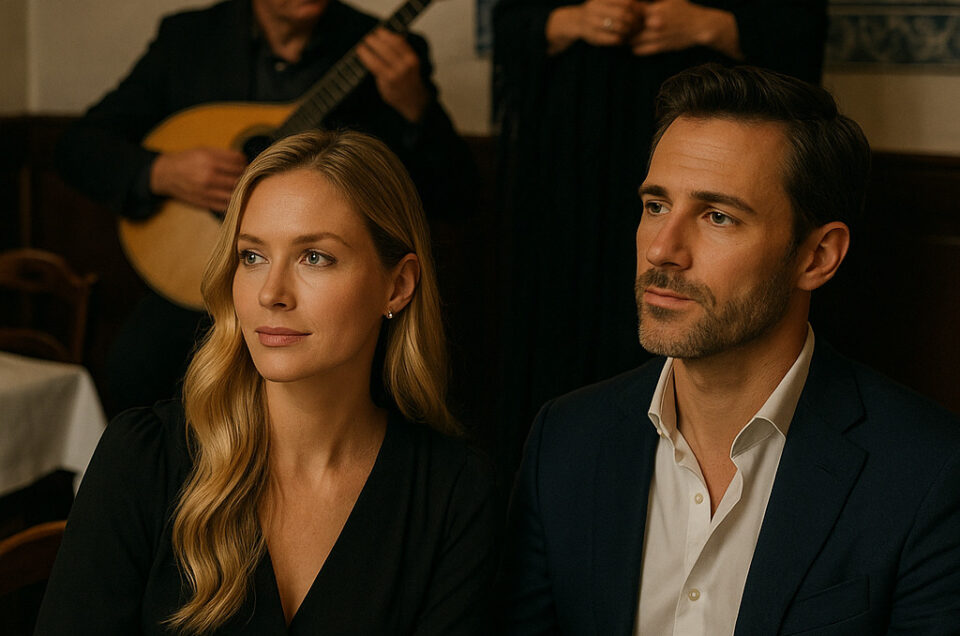Woven into the very fabric of Portuguese identity, Fado is more than just music—it is the expression of a nation’s soul. With its haunting melodies, melancholic lyrics, and profound emotional depth, Fado has endured for generations, offering listeners a window into the heart of Portuguese culture. But where did it all begin? What makes this genre so timeless and moving? Let’s take a journey through the captivating history of Fado, and discover how it continues to shape Portugal’s cultural and emotional landscape today.
A Sound Born from the Streets of Lisbon
Fado, meaning “fate” in Portuguese, emerged from the humble neighborhoods of Lisbon in the early 19th century. In districts like Alfama, Mouraria, and Bairro Alto, life was not easy. These were tight-knit communities of sailors, fishmongers, dock workers, and tavern-goers. Amid the narrow, cobbled streets and sun-washed laundry lines, Fado was born—not as a polished musical art form, but as a raw and intimate way for ordinary people to express deep emotions of longing, sorrow, and hope.
Early Fado was typically sung by women known as “fadistas,” who performed in taverns and brothels, often telling stories of lost love, hardship, betrayal, and the ever-present sense of saudade. Saudade is a difficult word to translate—it’s a nostalgic yearning, a deep emotional state that encompasses love and absence all at once. This unique sentiment lies at the heart of Fado and gives it its powerful, universal appeal.
The music was traditionally accompanied by the Portuguese guitarra—a twelve-string instrument unique to the country—paired with the classical guitar. The pairing produces a sound that is at once mournful and beautiful, sharp and soothing. Fado lyrics were often improvised and deeply personal, reflecting the lives and stories of the people who sang them.
The Rise of Fado: From Taverns to National Icon
As the 19th century progressed, Fado grew beyond Lisbon’s working-class quarters and started gaining popularity among the broader population. By the early 20th century, it was being performed in more formal settings, including cafés and small concert halls. The genre evolved into two primary styles—Lisbon Fado, passionate and intense, and Coimbra Fado, more academic and romantic, often performed by male university students in black capes.
\
The golden age of Fado came in the mid-20th century, largely due to the meteoric rise of Amália Rodrigues. Known as the “Queen of Fado,” Amália brought international fame to the genre with her emotionally charged voice and captivating performances. Her influence went beyond music—she elevated Fado to an art form that was both refined and deeply authentic. She incorporated poetry by famous Portuguese writers into her songs and toured the world, becoming an ambassador of Portuguese culture.
Through the years, other great names followed in her footsteps—Carlos do Carmo, Mariza, Camané, Ana Moura, and more—each bringing their own touch while staying true to Fado’s emotional core. Today, Fado has experienced a revival, attracting a younger generation of listeners and performers. It remains a living tradition, with vibrant Fado houses in Lisbon, Coimbra, and Porto welcoming visitors nightly for intimate, soul-stirring performances.
Fado’s Global Recognition and Enduring Legacy
In 2011, Fado was officially inscribed on the UNESCO Intangible Cultural Heritage list, affirming its value to world culture. This recognition solidified Fado not only as a treasured part of Portuguese heritage but as a musical form of profound human expression.
Visiting Portugal without experiencing Fado is like visiting Venice without seeing the canals. Whether it’s in an elegant Lisbon Fado house, a rustic tavern in Alfama, or even a traditional academic courtyard in Coimbra, the emotion of Fado will linger long after the final chord fades. It’s not uncommon for listeners—locals and travelers alike—to be moved to tears.
As one of our guests at Portugal Magik described it:
“We were taken to a hidden gem in Alfama where a small group of musicians performed with such intensity that the entire room fell silent. It was pure magic. We wouldn’t have found this place without our guide—thank you Portugal Magik for such an unforgettable evening!”
Let Portugal Magik Introduce You to the Heartbeat of Portugal
At Portugal Magik, we specialize in creating unforgettable journeys across the country, from the historical quarters of Lisbon to the Douro Valley, from medieval towns to coastal retreats. Including a Fado night in your itinerary is something we highly recommend—it’s one of the most authentic and emotionally powerful experiences a traveler can have in Portugal.
Our expert English-speaking driver-guides can design private multi-day tours tailored to your pace and preferences. Whether you’d like to include Fado, wine tastings, cultural excursions, or scenic drives along the coast, we’ve got you covered. We cover the entire country and our best-selling tours often span several days, allowing you to experience Portugal in depth and without any rush.
You can explore our top-rated private tour itineraries here:
👉 Portugal Magik Multi-Day Tours
Ready to plan your journey? Get in touch with us today:
-
Submit your request using the form below
-
Message us instantly via WhatsApp: https://wa.me/18884955099
-
Call us on our US phone number: 📞 (844) 923-2100
Let Fado serenade you while Portugal Magik takes care of the rest.
´




